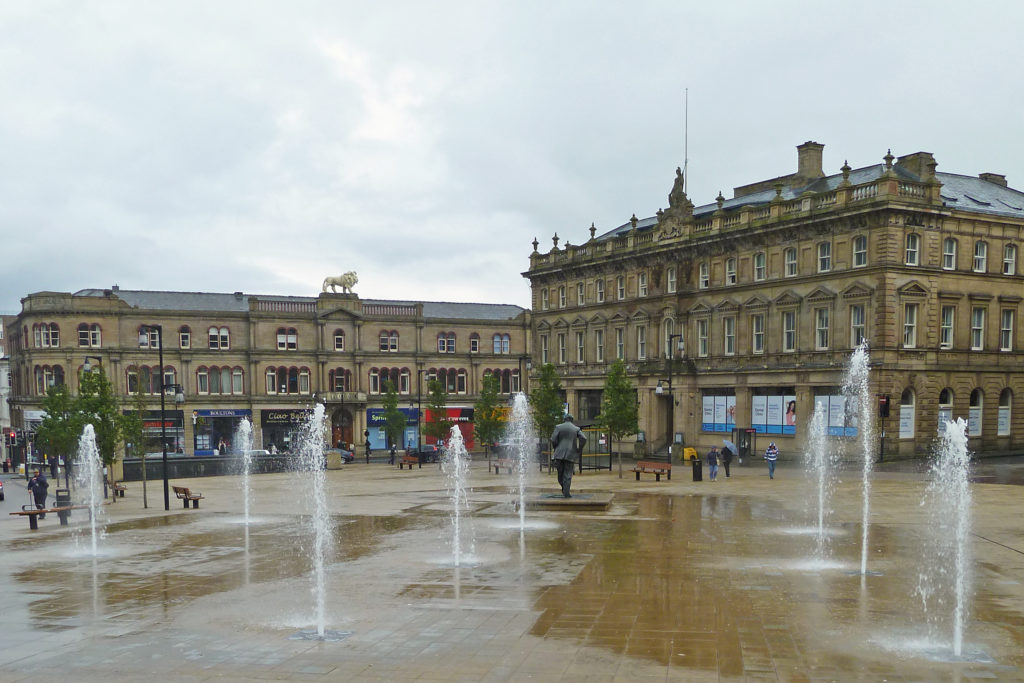The coronavirus pandemic is making most of us feel quite scared at the moment, and it’s by no means certain that this fear will subside once we emerge from the current crisis. One of the consequences of the pandemic is that our social and political landscape is changing fast, and when the pandemic is over it’s important to reflect deeply on what we want the future to be like. Towns like ours need support, and in next year’s local and Mayoral elections people here will vote for the political parties and the leaders who have a focussed plan.
Our actions right now are rightly focused on trying to stop the spread of the virus, to care for those people who are infected, to protect those most at risk and to hold together our society and our economy. As well as the tragic loss of life from this virus, we’re also facing the worst global economic crisis since 1945. With public finances being stretched to breaking point around the world, it’s likely that a new political landscape will emerge, with this crisis accelerating the decline of the USA and Europe and the rise of China.
Time will tell if the government’s injection of money into the system will do what it is supposed to – enabling families to stay safe, businesses to keep jobs open and give the economy some chance of restarting once the restrictions are relaxed. What we do know now is that easing restrictions is not like turning a light bulb on. With large retailers already cutting demand by as much as 60 per cent for some items (for example petrol), it is easy to see how even the largest companies will take a long time to get back to pre-coronavirus levels.
Against this backdrop we are going to need some very bold public policy interventions if we stand any chance of delivering a prosperous future for everyone here in Huddersfield.

Our town was already struggling before this current crisis. The town centre and public services have been in decline for a decade, and manufacturing has struggled since the early 2000s. Our university has been the one shining success, but even its growth has not been able to prevent the brain drain of very able young people to the bright lights and well-paid jobs in Leeds, Manchester and London.
Before Covid-19, the government’s ‘levelling up agenda’ may have been able to keep our economy ticking along, but that won’t be nearly enough in the new post-pandemic world that is now facing us.
So, what might the solutions be?
Firstly, we need to provide everyone who wants to with the chance to train, to acquire new skills and to get into a job in the digital, health, renewable energy and other growth industries. There’s long been a gap in what business says it needs – data scientists, software engineers and renewable energy installers – and the skills being developed by traditional routes.
This problem in the supply chain of skills requires urgent attention. We must start to develop regional and local employment and skills plans by bringing together businesses, trade unions, civil society, colleges, universities and the enterprise teams from our local authorities. And we should look to build upon models such as the recently launched University Academy 92 learning centre in Manchester to ensure that opportunity is provided to everyone regardless of their age, sex, economic status or ethnic background.
Next, we must find new sources of investment for key infrastructure including new hospitals, health research and development facilities, public transport, clean energy and digital infrastructure.
We must also be realistic about where the post-pandemic balance of power will shift in the world. The UK has always commanded the respect of countries in East Asia – from our cultural and sporting assets to the honourable and dignified way in which we managed the handover of Hong Kong. Whether we agree with Brexit or not, the new world provides us with an urgent imperative to build closer ties with the Far East.
Lastly, we should forge a fresh relationship between the private and the public sectors. The term “new normal” is being used more and more, and while we’re not yet in a position to understand what that fully means, it seems pretty certain that we will all come out of our homes with a different perspective on day-to-day life, including a different perspective on what it means to be a social animal.
We will have become used to looking out for people in our community and recognise that every one of us counts in the human value system. It’s almost as if the pandemic is giving us the chance to reboot our approach to human values, where everything is truly valued, including the joy and mental wellbeing that human contact brings.
With public finances stretched, private enterprise should be encouraged to help society keep its dignity and purpose, with greater recognition of the importance of local, smaller businesses, whose success is interdependent with the community around them.
Our local authorities and health bodies need private enterprise and innovation if they are going to tackle the health, social and environmental challenges ahead. This doesn’t mean outsourcing profitable services to the private sector, but instead it means facilitating collaboration to generate new products and services that respond to local need.
This is already working incredibly well in places like Liverpool (Capacity Lab) and Barnsley (The Digital Media Centre) and this is the ideal moment in which to fund the establishment of civic innovation and collaboration hubs in every part of the UK, including here in West Yorkshire.
Hugh Goulbourne is a lawyer and business ambassador in West Yorkshire. He is also a Labour Party and trade union activist and Chair of Huddersfield Cooperative Party.
